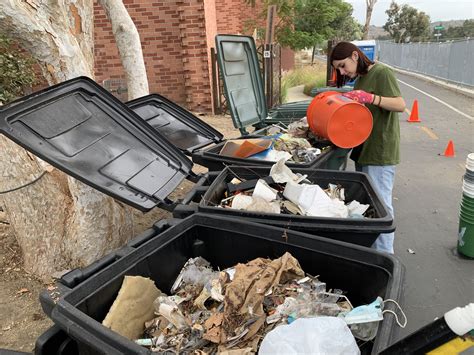Delaware, known for its beautiful coastline and rich history, is facing a growing problem that threatens the environment and public health: tech trash. With the rapid pace of technological advancements, electronic waste (e-waste) has become a significant concern in the state. It's essential for Delawareans to understand the issue and take responsibility for disposing of their electronic devices in an environmentally friendly manner.
What is Tech Trash?
Tech trash, also known as electronic waste, refers to discarded electronic devices such as computers, smartphones, televisions, and other electronic equipment. These devices contain hazardous materials like lead, mercury, and cadmium, which can contaminate soil, water, and air if not disposed of properly. Moreover, e-waste often ends up in landfills, where it can take hundreds of years to decompose.

The Consequences of Irresponsible E-Waste Disposal
The improper disposal of e-waste has severe consequences for the environment and human health. When electronics are sent to landfills, toxic chemicals can leach into the soil and groundwater, contaminating the ecosystem. Furthermore, the burning of e-waste in incinerators releases toxic fumes, contributing to air pollution and climate change. Exposure to these toxins has been linked to various health problems, including cancer, neurological damage, and reproductive issues.
Delaware's E-Waste Recycling Efforts
To address the growing problem of tech trash, Delaware has implemented various e-waste recycling programs. The state's Electronic Waste Recycling Program, established in 2010, allows residents to recycle their electronic devices at designated collection sites. Additionally, many local governments and private companies offer e-waste recycling services.

How to Recycle Your E-Waste Responsibly
Delawareans can take several steps to recycle their e-waste responsibly:
- Check with local governments or private companies for e-waste collection sites and accepted devices.
- Remove personal data from devices before recycling.
- Donate working devices to local charities or organizations.
- Participate in community collection events.
- Support manufacturers that offer take-back programs or design sustainable products.
The Benefits of Responsible E-Waste Disposal
Responsible e-waste disposal has numerous benefits for the environment, public health, and the economy. By recycling electronics, we can:
- Conserve natural resources by extracting valuable materials like copper, gold, and silver.
- Reduce greenhouse gas emissions and mitigate climate change.
- Create jobs and stimulate economic growth in the recycling industry.
- Protect public health by minimizing exposure to toxic chemicals.

Conclusion: Taking Action Against Tech Trash
Delaware's growing problem of tech trash requires immediate attention and action. By understanding the consequences of irresponsible e-waste disposal and taking steps to recycle electronics responsibly, we can protect the environment, public health, and the economy. It's essential for Delawareans to work together to address this issue and create a more sustainable future for the state.






What is e-waste?
+E-waste, or electronic waste, refers to discarded electronic devices such as computers, smartphones, televisions, and other electronic equipment.
Why is responsible e-waste disposal important?
+Responsible e-waste disposal is essential to protect the environment, public health, and the economy. Improper disposal can lead to the contamination of soil, water, and air, as well as the release of toxic chemicals.
How can I recycle my e-waste in Delaware?
+You can check with local governments or private companies for e-waste collection sites and accepted devices. Additionally, many manufacturers offer take-back programs or design sustainable products.
